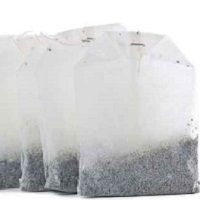Black Tea Warning
Black tea is popular and often promoted as healthy. But drinking too may be an under-recognized cause of kidney damage, a physician team warns in a case reported in the New England Journal of Medicine. The patient, who drank 16 glasses of iced tea daily, had kidney failure due to oxalate accumulation.

An Arkansas physician alerted New England Journal of Medicine readers that drinking too much black tea caused kidney failure in a 56-year-old patient.
Those tea leaves contain a lot of oxalate, he said.
“Oxalate nephropathy may be an under-recognized cause of renal failure,” Fahd Syed, MD of the Central Arkansas Veterans Healthcare System in Little Rock and colleagues wrote in a letter to be published April 2 in the NEJM.
The patient showed up at the hospital with weakness, fatigue, body aches and elevated serum creatinine level of 4.5 mg per deciliter compared to his previously recorded level of 2.5 mg per deciliter.
His urine showed “abundant calcium oxalate crystals” despite the fact that he had no other symptoms or habits that indicated kidney disease.
He had no history of kidney stones, family history of kidney disease, malabsorptive symptoms or history of gastric surgery, Syed and colleagues wrote. Nor had he consumed ethylene glycol.
The patient did admit to drinking sixteen 8-oz. glasses of iced tea daily.
Syed calculated that since 84% of tea consumed in the US is black tea, and that it is a rich source of oxalate, the patient was likely getting more than 1,500 mg of oxalate daily—higher than the average intact by a factor of 3 to 10 and 30 times more than one national guideline recommends. According to the Academy of Nutrition and dietetics, the maximum consumption should be 50 mg a day.
Cases of kidney failure due to oxalate consumption has been found in patients who have eaten too much star fruit, bilimbi,(cucumber tree fruit) rhubarb, and peanuts, the team wrote. Overingestion of ascorbic acid from “juicing” is another potential source of nephropathy.
The patient they treated had to be put on dialysis, Syed said.